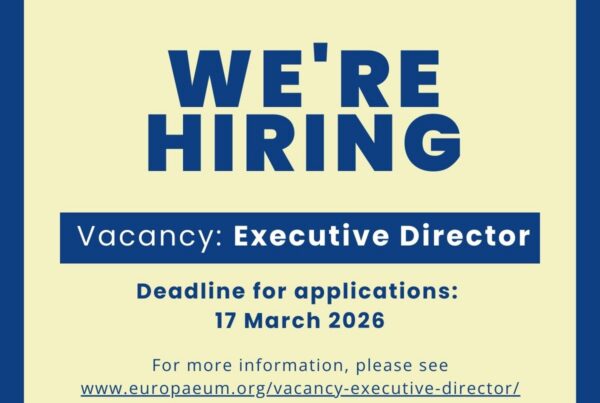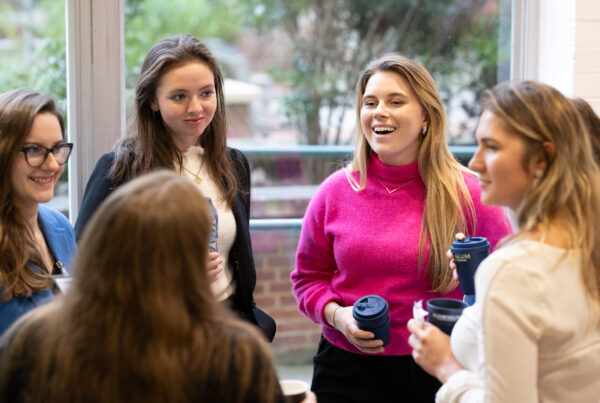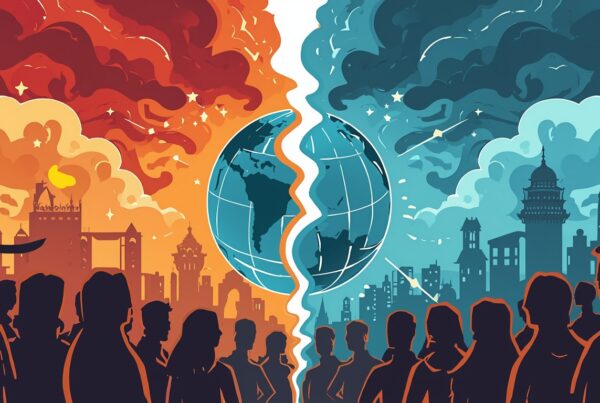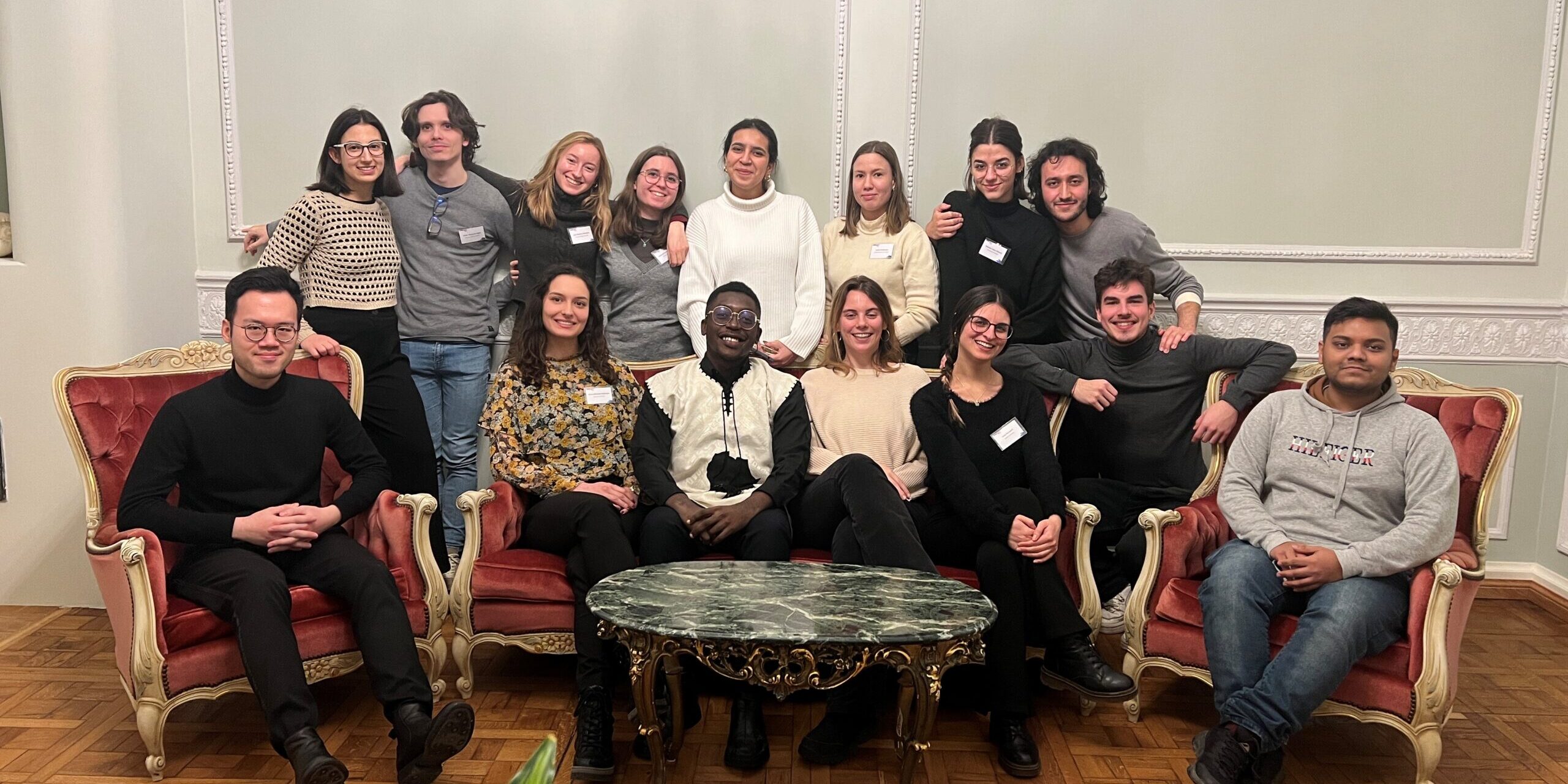
This year’s Winter School, co-organised with the University of Tartu, explored the twin themes of “Survivance and Survival”: how minority languages, cultures, and species both survive and resist domination (survivance = survival + resistance). The Europaeum sponsored more than twenty students to come to Tartu, Europe’s Capital of Culture for 2024, from across Europe. Our students met, and participated in discussions with, colleagues from all over Estonia across five days divided by theme.
The first day engaged the politics of heritage and memory. Dr Łucja Piekarska-Duraj (Jagiellonian), one of the Europaeum’s sponsored speakers, gave a keynote address on whether populist policies of memory are best interpreted through a postcolonial lens. Professor Magdalena Zolkos of University of Jyväskylä followed this up with a second lecture on “returns, relational memory, and ‘rematriation’.”
Day Two saw another Europaeum-sponsored speaker, Professor Julia Sallabank (SOAS) address the problem of how to decolonise language revitalisation. Day Three engaged the students in a series of parallel workshops tailored to their specific interests (for example, sustainable design practice, remedying racial injustice, and surviving in academic). On Day Four, the final Europaeum-sponsored speaker, Professor Sonja Dümpelmann (LMU Munich) moved the discussion onto questions of space and resistance in the public sphere. Finally, Day Five saw further discussions, including a keynote lecture by Annie McClanahan (UC Irvine), on surviving in the “gig economy” and “survivance” at work.
Students participated in seminar discussions with the invited speakers in between the keynotes, and also had the opportunity to present their own work as it related to the School’s overall topic in a series of additional panel sessions. Europaeum-sponsored speakers, including Professor Sallabank and Dr Marton Rovid (CEU) also took part in a series of roundtable discussions, including about protecting minority languages and about memory politics and museums.
The Tartu Winter School was particularly notable for the careful thought and planning that the local hosts had also put into extra-curricula activities which kept students and faculty entertained in the evenings. One, a fiendishly difficult quiz, invited participants to test their linguistic competence and logic in identifying minority languages. Another, ice skating on the special rink set up outside Tartu’s town hall each year, offered a different kind of test, one of physical dexterity. A reception in, and tour of, the University’s Old Library, itself built into the city’s even older cathedral, was a further highlight.
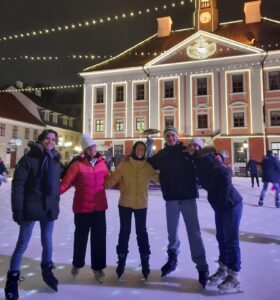
Student Helena Crusats Padrós (Leiden) writes:
“I am thankful to the Europaeum programme for having given me the opportunity to take part in the Survival and Survivance Winter School. It has been a pleasure to engage in very interesting conversations and debates with other peers from different European universities on subjects that I am passionate about. Tartu has been a very welcoming city that perfectly embraced the European Capital of Culture spirit. I encourage everyone to sign up for any upcoming Europaeum events!”
Student Jaume Quevedo (UPF Barcelona) adds:
“I flew to Tartu for my first Europaeum event without really knowing what to expect and I must say I was completely blown away. The accommodation and staff were fantastic, the lectures interesting and well-spaced to not feel overwhelming. It was also great to have the chance to talk with leading scholars about their current research. Although by far the best part was meeting other students from across Europe and discuss our interests and future research. Truly a unique experience that reinvigorated my love for research. ”
The Europaeum extends particular thanks to the local organisers of this event, Professor Riho Altnurme, Professor Raili Marling, and Lii Lang, as well as to a large number of other staff and student volunteers from Tartu who ensured that the event ran impeccably.

